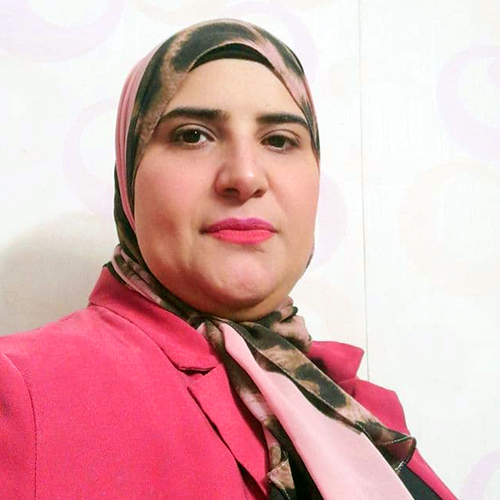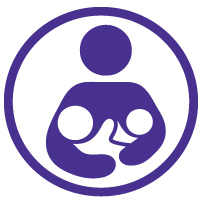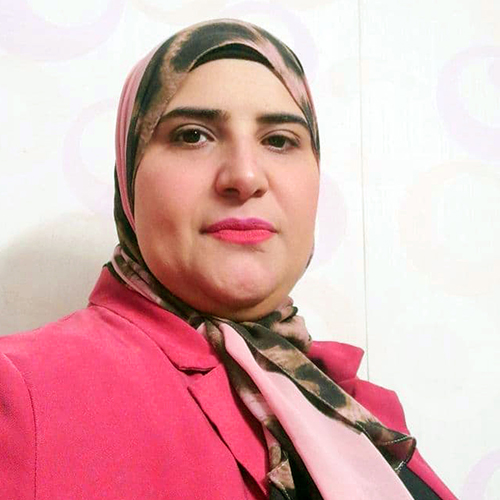 Lactation & Breastfeeding Online Course(s) & Continuing Education
Lactation & Breastfeeding Online Course(s) & Continuing Education
Access the latest clinical skills and research for Lactation & Breastfeeding for professional training. These Lactation & Breastfeeding online courses provide practice-changing skills and valuable perspectives from leading global experts. This Lactation & Breastfeeding education has been accredited for a variety of CEUs / CERPs and can be accessed on-demand, at your own pace.

More Than Just the Milk-Making Hormone! The Latest on Prolactin and Its Impact on Pregnancy and Lactation

Dave Grattan is a professor in the Department of Anatomy at the University of Otago, School of Biomedical Sciences. He has published over 180 research articles in the field of Neuroendocrinology, particularly focused on the hormone prolactin. He has also presented over 30 invited lectures at international meetings, and won a number of prizes, including the Triennial Medal of the Physiological Society of New Zealand (2005), the Mortyn Jones Medal of the British Society for Neuroendocrinology (2009) and HNNA Lecturer for the International Congress of Neuroendocrinology (2022). He was Head of the Department of Anatomy from 2011-2014, and Director of the Centre for Neuroendocrinology at the University of Otago from 2018-2023. He has served as the President for the New Zealand Society of Endocrinology (2003-2006) and for Hypothalamic Neuroscience and Neuroendocrinology Australasia (HNNA, 2017-2020). From 2009-2014 he was the Editor-in-Chief of the Journal of Neuroendocrinology, and is currently an Associate Editor at Endocrinology. He chaired the organising committee for the 8th International Congress of Neuroendocrinology in Sydney, Australia, 2014, and from 2018-2022 chaired the FASEB Science Research Conference on Growth hormone/prolactin family in health and disease.
Many changes take place during pregnancy to prepare for the physical and physiological challenges of becoming a mother, including numerous adaptations in the maternal brain. Dynamic fluctuations in key hormones during pregnancy induce these adaptive changes to enable the mother’s physiology to adjust to the new demands of these reproductive states and to provide the optimal environment for the development of her baby. Evidence shows that the “lactogenic hormones” (i.e. the multiple pituitary and placental hormones that act through the prolactin receptor) are critical for many of the adaptive changes that occur during pregnancy. It is well accepted that prolactin is required for lactation, but it is now clear that these hormones have a much wider role, influencing maternal behaviour and the maintenance of lactation infertility. Surprisingly, we have shown that prolactin action in the brain also mediates metabolic changes, including stimulation of food intake, a profound suppression in voluntary physical activity in pregnancy, and there is exciting new data showing a role for prolactin in thermoregulation. Collectively, we believe these observations are consistent with the hypothesis that prolactin (and its placental homologue placental lactogen) plays a key role in coordinating the behavioural and physiological adaptations to pregnancy in the mother, and lactation could be considered simply another in this suite of prolactin-mediated physiological adaptations. These data highlight a much more comprehensive role for prolactin in the process of mammalian reproduction than is typically considered for this “lactation hormone”.

View Details / Enroll


Erika Dudley is a Private Practice IBCLC and owns Enriched Lactation based out of Indiana. She has professionally supported lactating families for over 4 years from prenatal through toddlerhood. Erika's goal is to empower parents to understand there is value in their effort and action of providing breastmilk to their little ones. She educates tailored to a family's goal and it is done with the intention to display the value of lactation support as a whole that ideally serves as a ripple effect to future care. Erika is also the creator and host of the Leveling Up in Lactation podcast. It is a passion project that highlights, amplifies, and documents the journeys of Black Lactation Professionals.
The words that we use with families can be critical to their initiation and duration of their lactation journey. Often as lactation care providers we fixate on having the most updated, evidence-based information to support our clients, but what good is having the ‘right’ words if other parts of language and communication are missing or preventing those words from being received? This presentation will highlight the value of continuously updating our language skills to better serve families.

Mothering Experiences: The Development of Self-Efficacy in First Time Mothers

Eithne Murray developed a passion for breastfeeding as a result of her own experience as a mother – a passion she did not know she had. She initially trained as a breastfeeding counsellor with NCT in the UK and, upon moving back to Ireland, trained as a breastfeeding counsellor with Cuidiú-the Irish Childbirth Trust, later becoming a tutor. She qualified as an IBCLC in 2009, and worked privately for a while. She now works predominantly in education. This presentation was based on the research undertaken for a dissertation on transition to motherhood as part of her studies for a Masters degree.
Aims: The aims of this study were to explore the role of education and support in the development of self-efficacy in first-time mothers during the transition to motherhood.
Methodology: Using a qualitative approach, first time mothers, whose babies were less than 15 months old, were recruited from among women who had attended various models of antenatal classes They took part in a semi-structured interview on their experiences and personal constructs relating to the perceived quality of support they received were then elicited.
Findings: Becoming a mother was a process that held great meaning for all the mothers. For the women interviewed, breastfeeding was both a practice and a process which held meaning for these women. The impact of the various forms of antenatal classes in developing self-efficacy for all parental tasks is explored. The elicitation of personal constructs provides a novel format for women to evaluate the quality of the support they received – a topic which has been seldom researched.

View Details / Enroll

View Details / Enroll

Navigating the Future: Bioethical Challenges in Anticipated Integration of AI in Lactation and Breastfeeding Services

Zainab Yate is a Biomedical Ethicist, with a specialist interest in infant feeding. Zainab is Vice Chair and named qualitative lead on a paediatric flagged Research Ethics Committee Panel for the Health Research Authority (HRA) in the UK, reviewing research protocols for over a decade. Zainab's previous working background is in Public Health and Commissioning the National Health Service (NHS) in the UK. She had also been a volunteer breastfeeding peer supporter with the NHS for a number of years, is the owner-author of the resource site for mothers and healthcare practitioners on Breastfeeding / Nursing Aversion and Agitation and author of "When Breastfeeding Sucks".
Topic: Breastfeeding / Nursing Aversion and Agitation (BAA) in breastfeeding mothers - [View Abstract]
Topic: Navigating the Future: Bioethical Challenges in Anticipated Integration of AI in Lactation and Breastfeeding Services - [View Abstract]
Topic: Research Ethics & Infant Feeding: How to Utilise the Four 'D's of a Brief Assessment - [View Abstract]
This presentation examines the impending integration of artificial intelligence (AI) in lactation and breastfeeding services, shedding light on bioethical considerations both in a hospital setting and private practice. Delve into fundamental principles shaping ethical frameworks in AI, anticipate potential dilemmas in future technology integration, and prepare for responsible data management. Zainab explores the development of ethical responsibilities for healthcare practices in the evolving landscape of lactation support. Join us for insights at the intersection of ethics and technology, shaping the compassionate future of breastfeeding services.


Dr. Bond is a trained laboratory and social scientist currently studying the social and public health impacts of shared human milk. Specific areas of interest include development of the microbiome of the infant, immunological responses from the parent and infant, impacts of non-parental human milk on development of the immune response and microbiome, and risk abatement practices by participants in private arrangement milk sharing. She has been specifically trained in health disparities sciences and engages in research with a perspective on social justice, gender equity, and health equity. As a Hawaiian and Cherokee heritage scholar, she has a particular passion for colonial impacts on infant care and feeding practices.
In the absence of adequate banked donor human milk for distribution to all infants in need, many families choose to engage in the practice of Private Arrangement Milk Sharing (PAMS), partially facilitated through social media, to procure human milk for their infants. Evidence regarding the participant and infant characteristics, and risk abatement practices is limited. This presentation explores the state-of-the-science of PAMS, characteristics of recipient participants and infants, donor screening practices, and risk abatement strategies. Results are contextualized with a socioecological framework of factors affecting infant feeding practices. Influence of health care providers, lactation support, birth attendant, and sources sought during decision making and the impact of these influences on supporting families are discussed.

Neuroanatomy and Biomechanics: Breastfeeding as a First Movement Milestone

Allyson is a physical therapist, International Board Certified Lactation Consultant and co-owner of Nurture Columbus, in Columbus, Ohio. She completed a Bachelor’s degree in Biology from Ohio University in 1997, and Master of Physical Therapy degree from Northwestern University in 1999. After having a child in 2007, she volunteered as a La Leche League leader. She discovered a love for supporting new parents but a gap in lactation care, which led her to become an IBCLC in 2014. Her clinical approach to identifying and overcoming feeding challenges is unique with physical therapy foundations in posture, movement and reflexive function. Through presentations she endeavors to engage IBCLCs to know more about movement as related to human lactation, and PTs to learn about breastfeeding/chestfeeding as related to human development. As past-president (2019-2021) of the Ohio Lactation Consultant Association, she also advocates for equitable access to and health plan coverage for lactation care.
Topic: Neuroanatomy and Biomechanics: Breastfeeding as a First Movement Milestone - [View Abstract]
Knowledge of neuroanatomy, reflexes, and biomechanics as related to breastfeeding/chestfeeding is essential to IBCLC competency. This presentation will define breastfeeding/chestfeeding in terms of posture, movement, and reflexive function. Examples of neuromuscular dysfunction that impair breastfeeding will be provided. Strategies for treating neuromuscular dysfunction that impedes movement essential to breastfeeding/chestfeeding success will be reviewed along with new research on how participation in infant movement group classes facilitated maternal confidence in breastfeeding/chestfeeding. Presented by an IBCLC who is also a physical therapist, this presentation explores how breastfeeding/chestfeeding should be considered a first movement milestone fostered through interactive tummy time at the most basic and often effective level, and in need of more definition as such across the healthcare continuum. While alerting other healthcare professionals to this definition can help improve support for it, IBCLCs should be the clinical expert in its assessment and treatment as a foundation to collaboratively solving more complex movement impairments that challenge breastfeeding success.

View Details / Enroll

Neurologic Conditions and The Breastfed Infant

Ellen is the lactation services manager at Intermountain Healthcare Primary Children’s Hospital. She has a Master’s Degree in Public Health Nutrition, is a Registered Dietitian and an International Board Certified Lactation Consultant. Ellen has the unique advantage of using her nutrition knowledge as a lactation consultant. She has a passion for providing human milk for patients with nutritional challenges such as chylothorax and colitis. Her work on fat free human milk is published and has received national review. One of her career goals is to increase knowledge of nurses and healthcare providers regarding human milk immunology and breastfeeding thus improving lactation duration. Ellen has worked with the special needs breastfeeding dyad for the past 20 years at Primary Children’s Hospital to promote breastfeeding and human milk feeding. She designed, set up and manages the Mothers Milk Center at Primary Children’s hospital which opened in 2015. Ellen has presented at local, state and national meetings. She also has experience working at a corporate level with lactation consultants developing breastfeeding policies and protocols as well as lactation education programs for nurses and health care professionals.
Neurologic conditions often have a significant impact on the breastfeeding/chestfeeding dyad. The majority of these conditions are congenital, however some may be acquired during the first year of life. Breastfeeding/chestfeeding management of the hypotonic and hypertonic infant will be discussed. Hypotonic neurologic conditions that will be reviewed include floppy infant syndrome, infantile botulism, medullary lesions, Prader-Willi Syndrome and Trisomy 13, Trisomy 18 and Trisomy 21. The hypertonic neurologic conditions cerebral palsy and drug exposed infant will be discussed along with neural tube defects and Congenital Zika Syndrome. Case studies of special needs babies with these neurologic conditions will be presented.

Neuromusculoskeletal Disorders in the Breastfed Baby: Causes, Assessment, & Treatment

Dr. Valérie Lavigne graduated from the Canadian Memorial Chiropractic College in 1998. In July 2005, she became an IBCLC, the first chiropractor in Quebec with the title. She has her fellowship in pediatrics from the International Chiropractic Pediatric Association and has graduated in November 2014 with a Master of Science in Pediatric Musculoskeletal Health from the Anglo-European Chiropractic College. She is working in private practice in her chiropractic clinic in Kirkland, Quebec.
How comfortable are you at identifying neuromusculoskeletal issues in babies. This lecture will explore the triad aspect of breastfeeding – neurological, muscular and skeletal. A review of the causes, main conditions combined with tips to help you recognize neuromusculoskeletal issues will provide you with a more astute eye during your evaluation. Treatment options will be reviewed in addition to a review of the chiropractic and lactation literature. This lecture should create awareness amongst health professionals about the importance of treating neuromusculoskeletal issues in baby to optimize breastfeeding!

View Details / Enroll


Dr.Fayrouz Essawy Pediatrician, Neonatologist, IBCLC • Neonatology Consultant • Bachelor of Medicine and surgery - Cairo University 2004 • Master degree of pediaterics - Ain shams University 2012 • Egyptian neonatology fellowship 2015 • IBCLC 2015 • LCCC course instructor & developer 2016 • Breastfeeding medicine specialist. • Baby friendly coordinator. • Harvard Graduate of Training of trainee program 2020. • Member of the Egyptian Society of Pediatrics • Member of the Egyptian lactation consultant association (ELCA) • Member of the academy of breastfeeding medicine (ABM) • Member of the international lactation consultant Association (ILCA)
The feeding of breast milk during the NICU admission reduces the risk of short-and long-term morbidities especially in premature infants. Breastmilk provides immunological, anti-infective, anti-inflammatory, epigenetic, and mucosal membrane protecting properties. The mechanisms by which human milk provides its protection are varied. These mechanisms include immunological and specific unique human milk components that are not present in formula. Thus, the feeding of mother’s own breastmilk should be a NICU priority and every NICU should have a breastmilk storage and handling policy. In this presentation we will discuss how we can counsel parents about the infection control measures and guidelines related to storage, handling and administration of breastmilk to babies in the NICU. Learn more about hospital grade pumps, pumping at home vs pumping in hospital setting, prevention and management of potential mistakes such as giving a child another mother’s milk and how to handle and store fortified breastmilk.

View Details / Enroll

Nitty Gritty Anatomy: The Cranium, Supporting Structure and the Muscle Layer

Dr. Gerner has been a Maternity and Pediatric Specialist in private practice for over 17 years with an additional focus on functional infant cranial work. She teaches other professionals to support breastfeeding across the USA and internationally. She is a wife, mother of 3 grown children, and lives in Northern CA with her husband and their 2 rescued dogs.
Topic: Introductions and Establishing the Value of Integration - [View Abstract]
Topic: Nitty Gritty Anatomy: The Cranium, Supporting Structure and the Muscle Layer - [View Abstract]
Topic: Tying It All Together- Consequences of Pathology and Ideal Collaboration - [View Abstract]
Understanding the specific infant anatomy related to feeding function can unlock the mystery of why the baby is struggling and how to correct the problem. You will see very comprehensive video demonstration of normal function and easy to understand diagrams of common subluxation patterns. This presentation focuses on: (1) The infant cranial and spinal anatomy piece by piece and how it all interacts together; (2) The main muscles of breastfeeding function; (3) clinical presentations of common feeding challenges explained through the anatomy; and (4) correlations into other common infant pathologies of torticollis and Otitis Media.
















